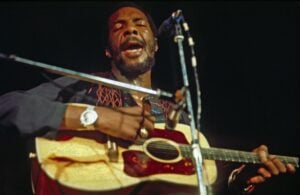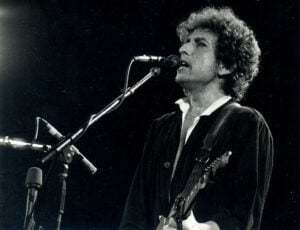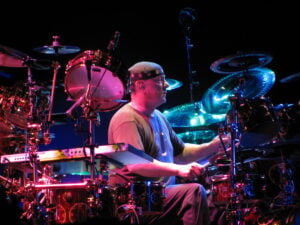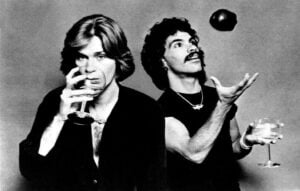The Band Tom Petty Once Slammed as a ‘Bad Impression’ of Himself

via @RedBaron863 / YouTube
Building a Band with Chemistry
Tom Petty often let his music speak for him. His songs carried his emotions, allowing listeners to share in his struggles, especially on albums like Echo. Yet beyond the personal lyrics, Petty also valued balance in his band. While he could write strong songs, he knew he needed the Heartbreakers to bring them fully to life.
The Heartbreakers were never just backing players. Petty saw them as essential partners, and their chemistry kept the band moving forward until his death. Benmont Tench’s keyboards and Howie Epstein’s bass added color and depth, but Mike Campbell became his closest creative partner. For Petty, Campbell was less a sideman and more a co-leader of the music they made together.
View this post on Instagram
Mike Campbell’s Role in the Heartbreakers
Even before Mudcrutch dissolved, Petty recognized Campbell’s importance. He leaned on the guitarist for key musical moments, whether it was the sliding melodies that echoed George Harrison or hooks that defined their sound. Campbell’s guitar parts often tied songs together, like the opening riff in Refugee or the descending motif in Breakdown.
Over the years, Campbell’s ability to blend lyrical playing with Petty’s songwriting made the band feel complete. His slide guitar gave their music a distinct texture, and his ear for melody helped shape some of the group’s most enduring tracks. Petty knew that without Campbell, the Heartbreakers would not have been the same.
Searching for New Sounds
Still, making music with the same team for decades had its challenges. By the time Petty worked with the Traveling Wilburys, he was already looking for new directions. Even during his solo work on Full Moon Fever, Campbell was by his side, but both musicians also wanted to explore other outlets. Campbell eventually created his own band, The Dirty Knobs, as a way to test ideas outside the Heartbreakers’ sound.
Petty encouraged side projects, as long as the results felt strong. Campbell had already proven he could succeed on his own, contributing to hits with artists like Stevie Nicks and Don Henley. But when Petty first heard The Dirty Knobs, he wasn’t impressed. To him, the music felt too close to what they had already built together.
Petty’s Harsh Words
Campbell recalled Petty confronting him about it. “[He said] ‘What are you doing? It sounds like a bad impression of me!’” Campbell admitted he tried to turn it into a compliment, replying, “‘Well, if it sounds like you that must sound pretty good, right?’” But Petty pushed back, saying, “‘Yeah, but you don’t want to do that.’”
Petty then asked Campbell a direct question: “‘Are these songs great?’ And I said: ‘Well, I don’t know, they’re pretty good.’” Petty’s reply was blunt: “‘Well if they’re really great, why don’t we do them?’ It’s like checkmate once again.” For Campbell, it was a reminder that Petty held high standards and expected nothing less than originality, even from his closest collaborator.
Finding His Own Voice
The criticism highlighted a real challenge for Campbell. He had only taken lead vocals on one Heartbreakers track, and when he did sing, his voice carried a tone similar to Petty’s. That resemblance, while natural, made it harder for him to stand apart musically. The Dirty Knobs, though solid in their own right, risked sounding too much like a shadow of the Heartbreakers.
Still, Campbell eventually embraced his project. After Petty’s passing, playing his own songs without worrying about comparisons became a way to process grief and continue making music. Though it took years and a few uneasy moments, Campbell grew more comfortable stepping forward. Today, his music with The Dirty Knobs allows fans to hear more of his creativity while still remembering the classics he built with Petty.














